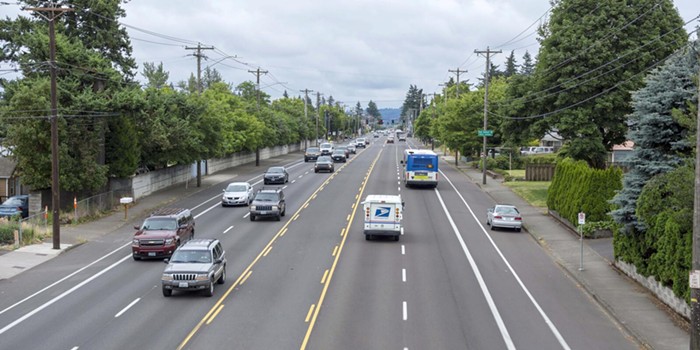
The Washington Post's Wonkblog looked at one of Ferguson's peculiar conditions—the majority African American city has an overwhelmingly white police department—and offered some national context showing all of the other cities in America where that holds true.
The post raised some necessary questions about where all those white officers might live. And that question, in turn, led Nate Silver at fivethirtyeight.com to look even more deeply at police demographics—getting data from the Census Bureau and Equal Employment Opportunity Commission to chart not only race and ethnicity but also where officers of a particular ethnic background live.
He produced a list ranking 75 cities—including Portland. The overall findings jibe with my 2010 analysis of all police bureau workers, in that only about 21 percent live in city limits, good enough only to rank among the bottom third of listed cities. But the details show something that wasn't available when we pored through city employees' zip codes: That percentage drops even lower when white officers are counted.

Silver, as you can see, gives that figure at 19 percent. But according to the raw census data (pdf), that number could be as low as 17.5 percent. Also interesting: Of the 40 officers (out of 1,000) identified as black in the census data, all of them are listed as living in Portland proper, as opposed to more popular off-duty police redoubts like Clark County and Vancouver and Gresham.
Housing affordability might be an issue. It's cheaper to live in larger, more palatial homes in some of those other places. I get it. But officers, even back in 2010, averaged close to $70,000 a year in annual pay, which is well beyond the city's median income. That money stretches even further in a two-income household. So it's not as if Portland is prohibitively expensive and the sticks are the only places where cops can afford to set down roots.
It's also about distance and getting away from the job. Retaining a sense of otherness. Which is why this is important. Community policing relies on fostering an actual sense of community—getting to know people as neighbors and not just as subjects in need of protecting/policing/investigating. Living in the cities they serve is one way (but hardly the only one) police officers can build that mindset.


















